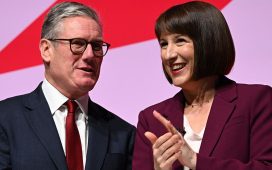
In a dramatic reshuffle, Rishi Sunak has appointed former Prime Minister David Cameron as Foreign Secretary.
The overhaul of government ministers was announced as speculation grows about the timing of the next general election.
When is the next general election due?
UK general elections – where all 650 Members of Parliament (MPs) are elected to the House of Commons – have to be called no more than five years apart.
This represents five years from the day the current Parliament first met (17 December 2019), plus the time required to run an election campaign.
Who decides when an election takes place?
The prime minister (PM) decides when to call the election, but this has not always been the case.
In 2011, a law was passed which removed the PM’s power to choose the date of an election, and instead handed control to the House of Commons.
Under those rules, an early election before the end of the five-year term could only be held under certain circumstances – such as if two-thirds of MPs agreed.
This restored the PM’s power to call elections at a time of their choosing, at any point within the five-year period.
How does the PM call a general election?
Rishi Sunak is the second prime minister of King Charles’s reign
Once an election is called, polling day is expected to take place 25 working days later.
At the point of dissolution, MPs lose their status, and campaign for re-election – assuming they choose to stand again. Some MPs choose to stand down ahead of a general election.
Government also enters a “pre-election period”- previously known as “purdah” – which restricts ministerial and department activity during the campaign.
How is the general election decided?
The UK is divided into 650 areas, called constituencies. Each one elects a MP to represent its residents in the House of Commons in London.
On election day, registered voters in each constituency vote for their preferred candidate in their local polling station. Some people choose to vote by post in advance.
Most candidates represent a specific political party, but some stand as independents.
In a general election, each person has one vote. Under the “first past the post” system, the candidate who gets the most votes becomes the MP for that area.
After a general election, the King asks the leader of the party with the most MPs to become prime minister, and to form a government to run the country.
The leader of the party with the second highest number of MPs becomes the leader of the opposition.
Who can vote in a general election?
Anyone on the electoral register aged 18 or above on polling day has a vote as long as they are:
- a British citizen, a qualifying Commonwealth citizen or a Republic of Ireland citizen
- resident at a UK address, or a UK citizen living abroad who has been registered in the last 15 years
- not legally excluded from voting
You can register to vote at any time if you are 16 or over – or 14 or over in Scotland.
Can the opposition force an election?
The prime minister must have the “confidence” of the House of Commons to govern, which means they must be supported by a majority of MPs.
A motion of no confidence sees MPs from all parties decide whether they want the government to continue.
If the leader of the opposition introduces such a motion, the government is expected toprovide parliamentary time for a debate and a vote.
In order to pass, the motion needs just one more MP voting in favour than against.
If the government loses the vote, a general election is normally called.
Former PM Boris Johnson survived a vote of no confidence in June 2022
It is also possible that the King could invite somebody else to form a government, if they could win a vote of confidence in the House of Commons.
However, for a no confidence motion to pass, the incumbent party’s MPs need to vote down their own government – which is very unlikely.










